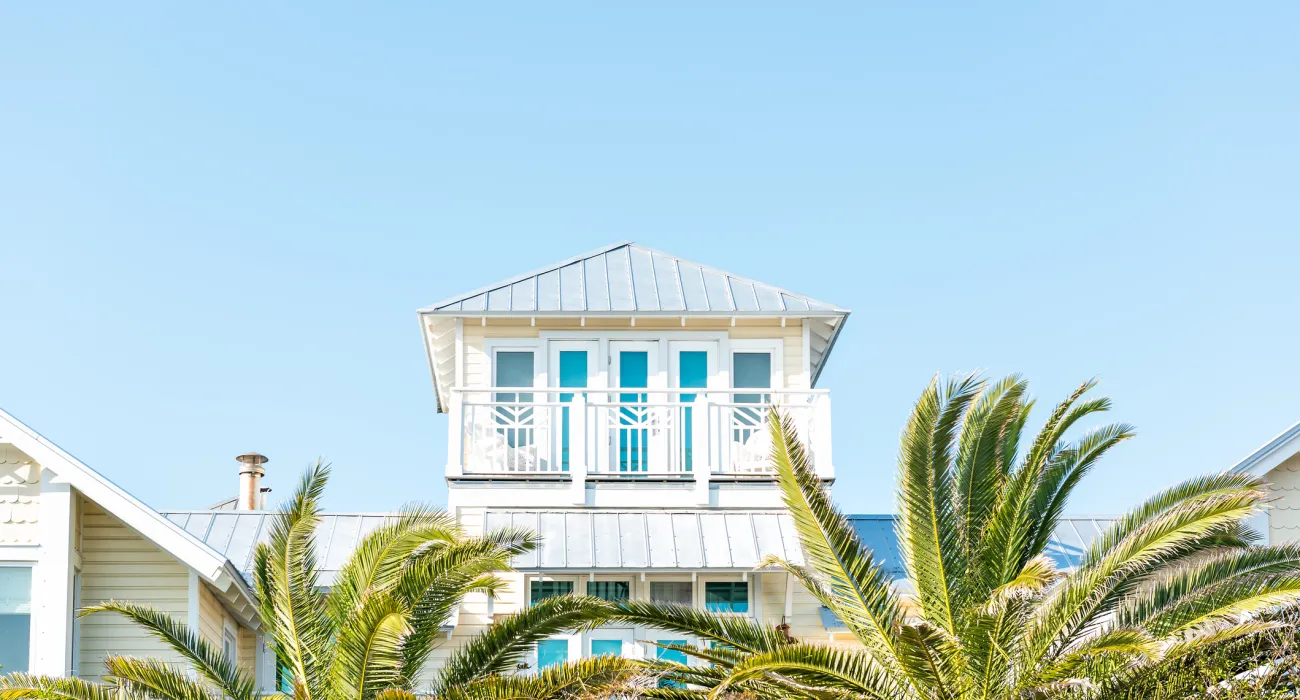If you're in the market for a New Smyrna Beach oceanfront condo for sale or any other type of waterfront property, it's a big decision. Waterfront property can be beautiful and a great investment, but you have to think carefully about the pros and cons.
You have to be prepared for what waterfront living can mean for your lifestyle overall and the implications to ensure you're making a well-informed buying decision.
With that in mind, the following are pros and cons and general considerations when it comes to buying a waterfront home.
The Basics of Buying a Waterfront Home
When you're buying a home on the water, you have to think about location. Yes, you do the same if your home is landlocked, but with a waterfront home, there will be different considerations if you purchase something on a barrier island, as an example. If you're on a barrier island, you'll need to have a plan if you have to evacuate, and you'll likely invest in a generator and supplies for emergencies.
If you're someone who likes to fish, you might want to be close to a channel, and you'll think about how far it would be to cruise to your destination.
You'll also want to factor in the costs of additional things that make waterfront living enjoyable. For example, you might need high-end outdoor furniture and maybe water toys or a boat. If you get a boat, you may have to think about storage. You want to include all of the costs of the waterfront lifestyle that you hope to achieve when you make a decision on a waterfront property.
A waterfront home can be one that's directly on the coastal shoreline. It can also be one that's near a marsh, a waterway, a river, a stream, or a lake. Each of these is going to provide a different lifestyle and its own unique pros and cons.
While homes that are oceanfront are largely considered the most valuable real estate in the world, it doesn't mean this is the right choice for everyone. Some find that it's better for them to be near the water rather than directly on it.
Many waterfront homes are second homes rather than primary residences.
The Pros of Buying a Waterfront Home
If you buy a home on the water, it's desirable for a lot of reasons. That's why these homes come at a premium as far as the price.
First, there's a quality of life that comes with living on the water that you can't get in any other way. A lot of people find that being near the water is therapeutic. It's beautiful to be able to look outside and see something that brings you a sense of peace and tranquility.
You can't necessarily put a price tag on how something makes you feel.
Waterfront homes also have a strong potential to appreciate value. Waterfront property is consistently the most in demand.
If you're buying a home as an investment, then you're going to be able to have better rental income if your home is on the water because this is what short-term renters want when they're traveling. The rents that you charge can be higher, and you're more likely to stay booked up. You might find that even though a waterfront condo or home is more expensive, you can easily cover your costs of ownership and potentially make a profit.
There's a sense of permanence that comes with a waterfront home. You don't have to worry about development occurring on the water, so you have a sense of protection from things you might not want around you, like a lot of construction and new neighbors.
The lifestyle when you live in a waterfront home can include better air quality and just a higher quality of life overall for a healthier body and mind.
The Cons of a Waterfront Home
While waterfront living has pros outweighing the cons for the majority of people, there are still things you have to make sure you're prepared for.
One logistical concern is the insurance. Waterfront houses need additional insurance compared to a landlocked homes in most cases, especially if hurricanes are common.
You might need flood insurance, and you have to make sure you're fully covered in all ways.
If you buy a home that's in a coastal area, it's probably going to need an exterior finish that will protect it from sand and salt damage, and you might also need to do things to protect it from storm damage, like adding impact windows.
The maintenance of a home near water and especially the sea, is going to take more time and money than a home that's landlocked. Both humidity and salty sea air can cause erosion, and those effects might not be limited to the exterior—they can also affect the interior.
While you're protected from having someone develop on the water, there are privacy concerns. For example, if you're on a waterway, it could mean that you are dealing with a lot of boat traffic around your home, and that creates less privacy.
If you buy in some places during low tide, there could be places directly adjacent to your home that are public property.
There may be added regulations that come with a waterfront home. There might, for example, be a coastal commission that puts restrictions on what you can and can't do with your home.
The unpredictability of the weather in coastal areas can be a concern for some buyers. The weather conditions are not only tough to predict but can be harsh.
If your budget allows it, you may find that being near the water is rejuvenating and healing for you in a way that overcomes any of the downsides of the lifestyle, but it's a highly personal decision for everyone.
If you know what to expect and what you want out of your lifestyle, it'll help guide you in the right direction, whatever that might be.




